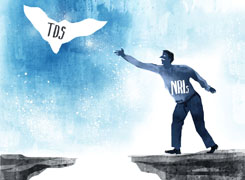Mihir Tanna |819 Answers |Ask -Follow
Tax Expert - Answered on Jul 10, 2023
He regularly represents clients before the income tax authorities including the commissioner of income tax (appeal).... more

I am dispatched to South Korea from a subsidiary in Bangalore. I get allowances in Korea which are paid after deducting tax and i continue to receive salary in India after TDS as usual. Can I get any tax benefit on Indian income if I stay
You may like to see similar questions and answers below
Anil Rego |340 Answers |Ask -Follow
Financial Planner - Answered on May 31, 2021
Mihir Tanna |819 Answers |Ask -Follow
Tax Expert - Answered on Oct 18, 2022
Vivek Lala |220 Answers |Ask -Follow
Tax, MF Expert - Answered on Mar 10, 2023
Vivek Lala |220 Answers |Ask -Follow
Tax, MF Expert - Answered on Mar 11, 2023
Patrick Dsouza |185 Answers |Ask -Follow
CAT, XAT, CMAT, CET Expert - Answered on Apr 29, 2024
Patrick Dsouza |185 Answers |Ask -Follow
CAT, XAT, CMAT, CET Expert - Answered on Apr 29, 2024
Patrick Dsouza |185 Answers |Ask -Follow
CAT, XAT, CMAT, CET Expert - Answered on Apr 29, 2024
Patrick Dsouza |185 Answers |Ask -Follow
CAT, XAT, CMAT, CET Expert - Answered on Apr 29, 2024
Krishna Kumar |254 Answers |Ask -Follow
Workplace Expert - Answered on Apr 29, 2024
Ramalingam Kalirajan |939 Answers |Ask -Follow
Mutual Funds, Financial Planning Expert - Answered on Apr 29, 2024
Ramalingam Kalirajan |939 Answers |Ask -Follow
Mutual Funds, Financial Planning Expert - Answered on Apr 29, 2024
Ramalingam Kalirajan |939 Answers |Ask -Follow
Mutual Funds, Financial Planning Expert - Answered on Apr 29, 2024
Ramalingam Kalirajan |939 Answers |Ask -Follow
Mutual Funds, Financial Planning Expert - Answered on Apr 29, 2024
Ramalingam Kalirajan |939 Answers |Ask -Follow
Mutual Funds, Financial Planning Expert - Answered on Apr 29, 2024


























